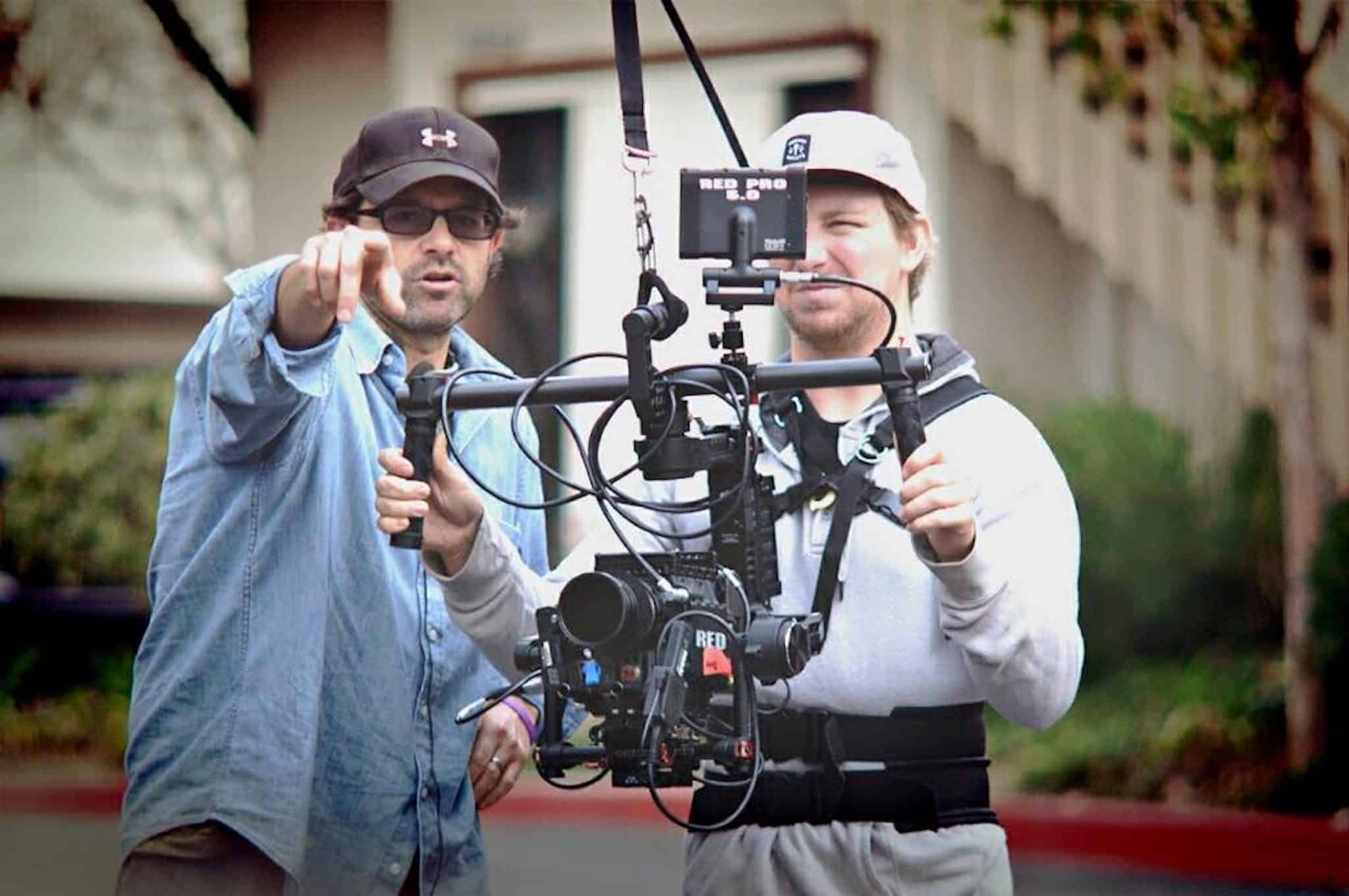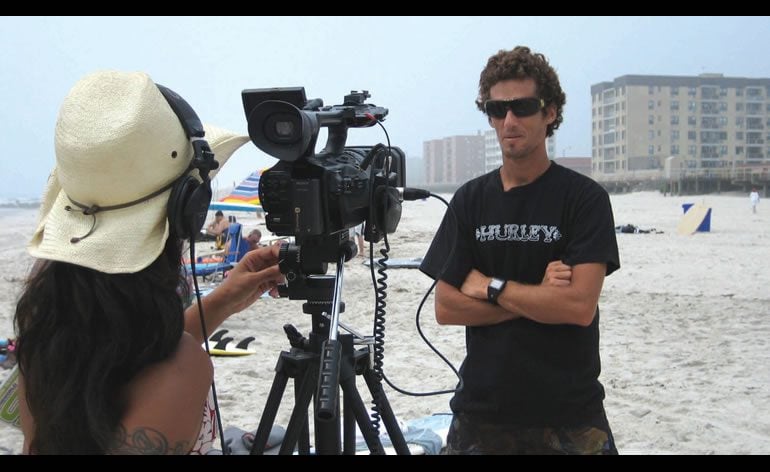Shane Stanley
www.shanestanley.net
Shane Stanley is a lifer. His career began in front of the camera at 9 months old before becoming a two-time Emmy Award winning filmmaker and launching his own company, Visual Arts Entertainment. Best known for Executive Producing the #1 Box Office hit, Gridiron Gang for SONY Pictures starring Dwayne “The Rock” Johnson, Stanley’s resume as a filmmaker spans three decades. Shane offers a wealth of knowledge in his new book, “What You Don’t Learn in Film School” from several aspects of the industry focusing on educating future storytellers and helping them bridge the gap between what’s taught in the classroom and what they’ll experience in the real world.
Tell us about your current projects.
Shane Stanley: My latest project is “Mistrust” starring two-time Golden Globe and Emmy Award-winner, Jane Seymour and Parker Stevenson. The film premiers on Showtime June 1st. I also just completed working on the special anniversary BluRay edition of “Gridiron Gang” starring Dwayne ‘The Rock’ Johnson which will go into over 2,500 retailers this summer and include the original documentary from 1992 my father and I made which the #1 Box Office hit was based off of.
Can you describe your indie filmmaking process?
Shane Stanley: My indie filmmaking process is probably a little different than most. Since I come from the documentary background, my philosophy has always been ‘get me a subject and a camera and everything else will fall into place.’ I never look at a project from the viewpoint of needing a certain budget to tell the story. I work backwards and say, ‘how much do I have to make this…Okay, let’s pull the trigger and get it done.’ From there its just a matter of finding the right group who wants to sign up and go play. Being an all-encompassing filmmaker helps, as if you’re writing, producing, directing and editing a film, you can get a lot more done with limited resources. After 30-plus years, I’ve made a career out of doing just that and frankly, wouldn’t want it any other way.
Can you share with us an indie filmmaking-related Challenge and Solution?
Shane Stanley: Finding a good and marketable cast for small budget films can be a challenge. Of course, having a good reputation is key and strong relationships with agents and managers are essential. But at the end of the day you have to have good product, as you’re not in the position of offering a fee that’ll bowl anyone over. To out kick your punt coverage in casting, be creative and approach talent you can gain access to and those who can relate to your material. Once you get your script read – and hopefully its well received – push to meet with the actor, as a face-to-face meeting significantly elevates the chances of it all coming together. The actor’s guard comes down and allows a connection early on that is never made when an agent is playing middleman. Of course, sometimes you’ll get rejected but hey, Michelle Pfeiffer passed on “Silence of the Lambs” and Mark Wahlberg turned down “Brokeback Mountain” and that didn’t stop anyone. Always remember there’s a huge world out there and many territories are happy to pay fairly well for names who don’t move the needle much here in the states.
If you could share your Top 3 Tips related to indie filmmaking or working with film projects and inspired by trial-and-error and your own discoveries through working on projects what would they be?
Shane Stanley: To lead, you have to be able to delegate and put the right people in place. Don’t try to make people in to who you want them to be. As independent filmmakers we often ask or expect others to do things beyond their abilities and can pay dearly for it. I’m all for asking people to step up their game and accept the challenge, but there are some people who are just not up for the task and buckle under pressure. If you waste too much time trying to fit people into something they’re not, your project will suffer and you’ll go insane during the process.
Another important thing is preparation, especially during pre-production. There is no reason (or excuse) for a set to be tense, running behind or on the verge of becoming unglued. It always amazed me how little attention to detail goes in to a film during pre-production which, too often causes the wheels to come off the wagon during a shoot. Problems will happen – they’re inevitable – but when you’re over prepared, they’re merely speed bumps that are easy to overcome and not major obstacles that can shut down production. In my book, “What You Don’t Learn in Film School: A Complete Guide to (Independent) Filmmaking” the longest chapter is on pre-production and the importance of it. Everything I share comes from my 30-plus years of trial and extreme error, most in which was totally avoidable if only pre-production was given proper attention.
Finally, don’t rush the process. When you’re working with the studios often there’s a release date set long before you begin rolling camera – its part of the battle plan that’s built in during their exhaustive development. As indie rats, we don’t always have the time or recourses for prolonged development, nor can we dictate where and when our project is going to be released. Because of this, its not uncommon for people to either take too long to get a project finished or even worse, rush it out into the wild. Once you get your film in shape and before you lock it up, be sure to hold screenings for people who have nothing to lose or gain by giving their input. You will never please all of the people all of the time but the last thing you want is to assume your project is ready for the world to see when only the ‘team’ has seen it and fallen in love with it assuming its a winner. I can promise you, it isn’t.





